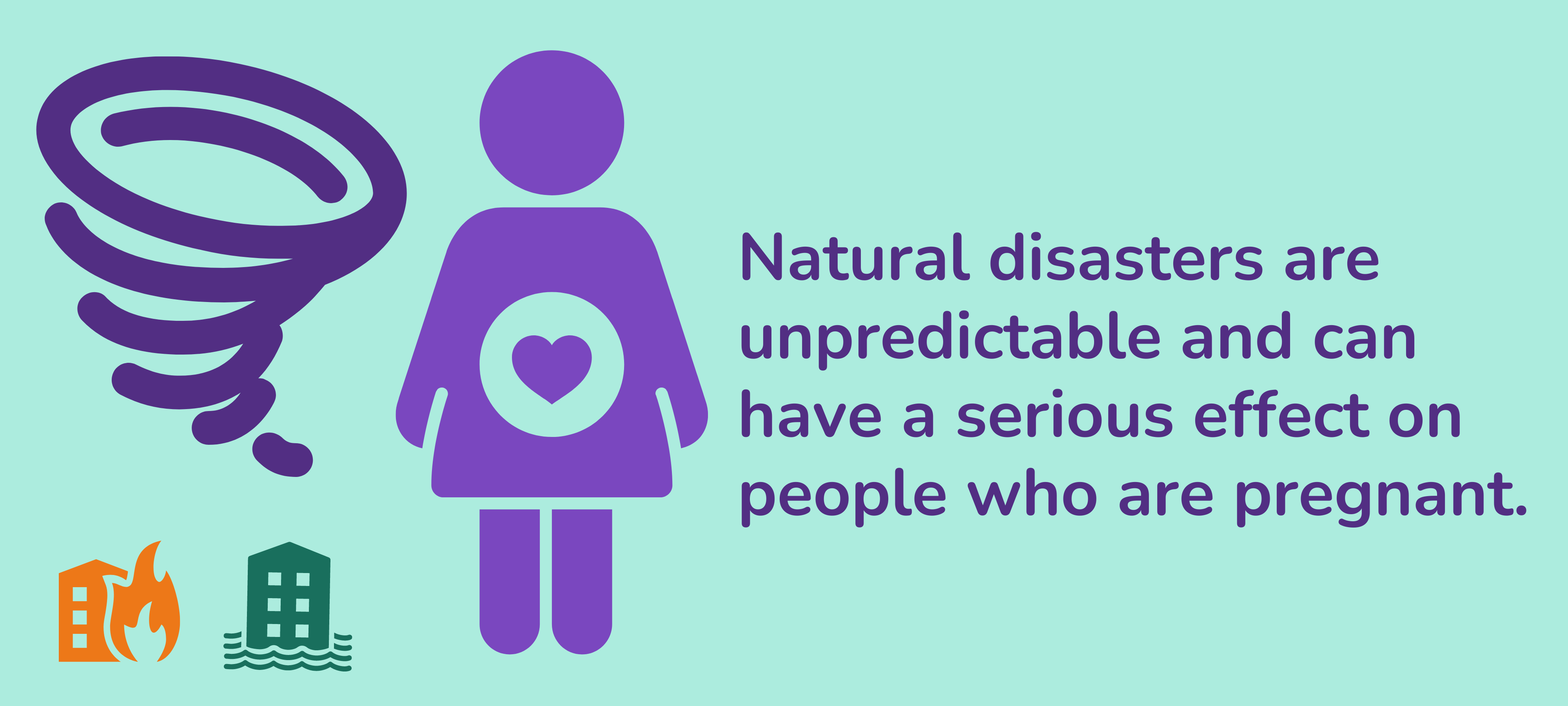When Nature’s Fury Strikes
Disclaimer: This page houses important information and resources pertaining to natural disasters during pregnancy and while breastfeeding, including links to our evidence-based Fact Sheets. However, the resources here should not replace the care and advice of a medical professional.
Being pregnant or breastfeeding an infant can be a challenge under normal conditions, but doing it when your world is in disarray because of a natural disaster can feel overwhelming. No matter the form of chaos you’re dealing with – from hurricanes to wildfires, floods to tornados, earthquakes to volcanic explosions – there’s a good chance you’re going to have questions about how natural disasters could affect your pregnancy or your breastfed baby. That’s where we can help!
Specific exposure concerns may change depending on the type of disaster you’re facing and could be environmental in nature, such as concerns about air quality, drinking water contamination, mold from flooding, and how to safely clean your home if it’s still standing. There is also the emotional and physical toll that a natural disaster can have on you, from anxiety and stress to sleep deprivation and disrupted health care.
While an emergency can be devastating for any affected population, women who are pregnant and postpartum require additional considerations given the unique physical and psychosocial needs associated with pregnancy in both non-emergency and emergency scenarios.
— U.S. Department of Health and Human Services Maternal-Child Emergency Planning Toolkit

Reference: National Library of Medicine
If you live in an area that is prone to natural disasters, regardless of whether you are pregnant or breastfeeding it is always best to be prepared for the worst. Actions you can ahead of time that may help reduce your stress when disaster strikes include:
- Developing an emergency action plan for your family.
- Preparing an emergency kit that includes at least a 3-day supply of food, water, and critical items like medications, items needed for baby (e.g., diapers, clothing, formula if bottle feeding), items needed for pets, etc.
- Signing up with your local emergency management agency for any emergency alert apps or systems they operate (e.g., text alerts).
- Keeping copies of important documents in a waterproof packet with your emergency kit (e.g., driver’s license, insurance cards, birth certificates, passports, etc.).
Visit Ready.gov for information on specific types of disasters and emergencies as well as information on making a plan and preparing for disasters.
Please see our library of resources below on natural disasters during pregnancy and breastfeeding.
Related Fact Sheets
Related Baby Blogs
Related Podcasts
External Resources
- Centers for Disease Control and Prevention: Coping with a Disaster or Traumatic Event
- Centers for Disease Control and Prevention: Disaster Planning: Infant and Child
- Centers for Disease Control and Prevention: Disaster Safety for Expecting and New Parents
- Centers for Disease Control and Prevention: Safety Messages for Pregnant, Postpartum, and Breastfeeding Women During Natural Disasters and Severe Weather
- Centers for Disease Control and Prevention: Wildfire Smoke and Pregnancy
- U.S. Department of Agriculture WIC Breastfeeding Support: Breastfeeding during Disasters
- U.S. Department of Health and Human Services: Maternal-Child Emergency Planning Toolkit
- Healthychildren.org
Partners
- Patient Education Genius
- Pediatric Environmental Health Specialty Units (PEHSUs)
- Postpartum Support International
- Society for Maternal-Fetal Medicine
- Society for Birth Defects Research & Prevention
Stay in Touch
Our e-Newsletter brings you the latest information, news, and resources from the experts at MotherToBaby.
Join a Study
Expecting parents deserve better information about medication use in pregnancy and breastfeeding – and you can help by participating in a study.
Ask Our Experts
Call, text, chat, or email for a free personalized risk assessment on exposures in pregnancy and breastfeeding.

